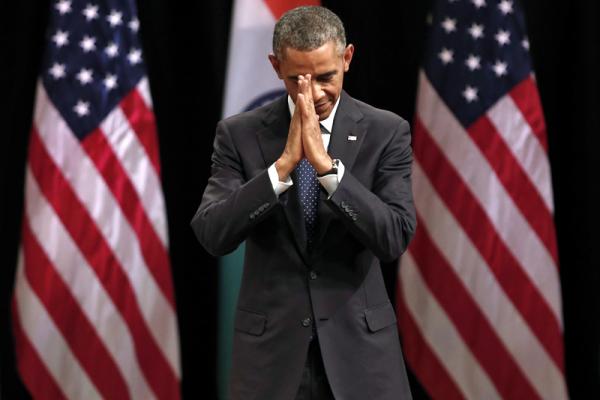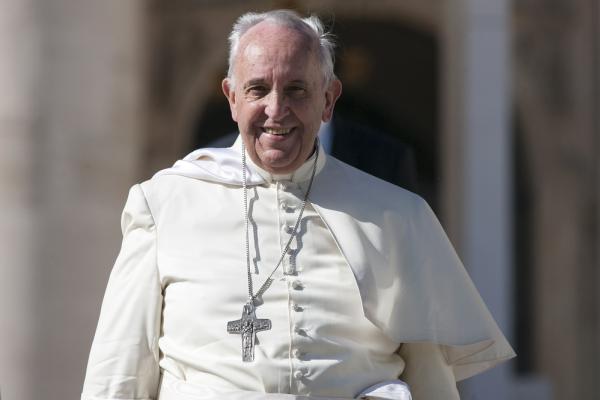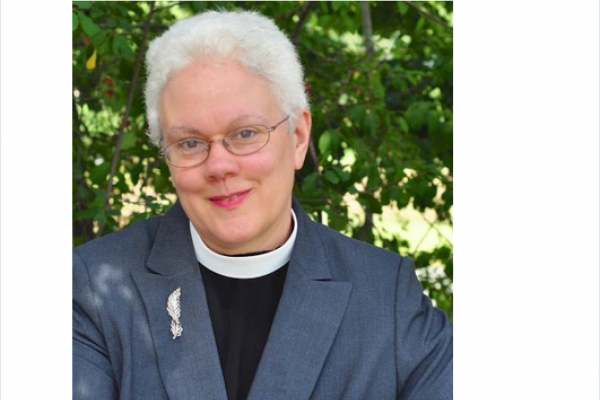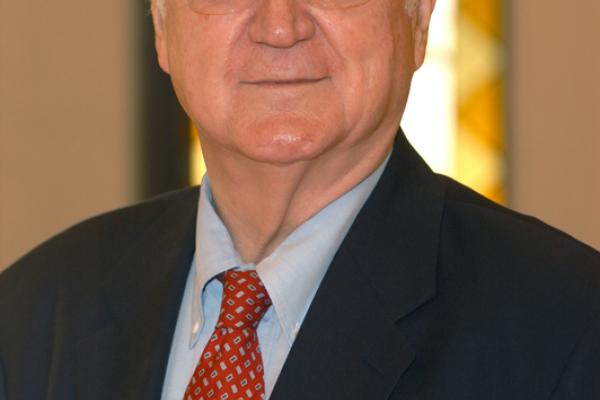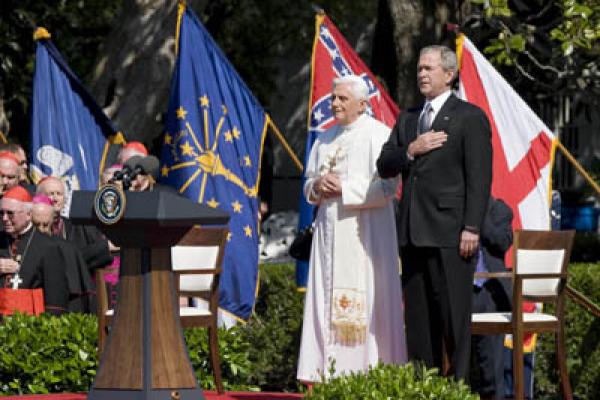In 2010, the book, The Boy Who Came Back From Heaven, was released. At the time, I believe I gave this news about 0.3 percent of my attention, and 0.1 percent was spent lamenting terrible theology prevalent in the popular Christian book market.
I don’t believe we die and are snatched up to heaven, but that is subject for another post — or better yet, go read N.T. Wright’s Surprised by Hope. Another 0.1 percent of my energies went toward flinching and cringing at the way this boy was IMO being exploited for book sales. In hindsight, I should have spent more time praying for him and his mother, whose cries for truth has been silenced by the powerful machine of the publishing industry. The last 0.1 percent was energy exerted to shaking my head at the allure of sensationalism — enough to shift millions of books and a movie deal.
It came as no surprise when last week The Boy Who Came Back From Heaven retracted his story.
U.S. President Barack Obama weighed in on one of India’s most sensitive topics as he wound up a visit on Jan 27, making a plea for freedom of religion to be upheld in a country with a history of strife between Hindus and minorities.
Hours before boarding a flight to Saudi Arabia, Obama warned India not to stray from its constitutional commitment to allow people to freely “profess, practice, and propagate” religion.
“India will succeed so long as it is not splintered along the lines of religious faith, as long as it is not splintered along any lines, and it is unified as one nation,” he said in a townhall address to mostly young Indians.
Obama’s speech, after three days in New Delhi aimed at cementing a strategic partnership, was widely interpreted as a message to Prime Minister Narendra Modi and his Hindu nationalist Bharatiya Janata Party (BJP), whose rise to power emboldened activists to declare India a nation of Hindus.
In discussing birth control and population issues when visiting the Philippines recently, Pope Francis said the Catholic Church promoted “responsible parenthood” that didn’t require good Catholics to be “like rabbits.” The frank imagery prompted a flurry of playfully creative headlines that ranged from mocking to woeful. And the byproduct of such reaction stories? The continued misinformation on what Catholics currently practice and what the Catholic Church actually teaches when it comes to family planning.
The pope’s remarks referenced Catholic teaching that prohibits artificial birth control. Family size, according to the Church, should be regulated by abstinence or a form of Natural Family Planning, sometimes characterized simply as trying really hard not to have sex when you’re “not supposed to,” which often fails and results in a ton of kids. Proponents of NFP say the method(s), and its practitioners, are too often misunderstood.
NFP for pregnancy prevention involves charting a woman’s cycles by testing for various biological markers — like basal temperature or cervical mucous — in order to assess fertile days and abstain from sex during that time. According to the World Health Organization, fertility awareness methods like NFP are 95-97 percent effective when used correctly and consistently (75 percent with typical use), and individual NFP models claim higher effectiveness.
Practicing NFP can certainly be complicated, especially when taking into account marriage and family dynamics that aren’t always conducive to the attention it requires.
But while it may be more difficult than, say, popping a daily pill or using an IUD, modern technology — like tracking apps and temperature-monitoting gadgets — is simplifying the process and coinciding with a resurgence in popularity. NFP practitioners say they appreciate the choice it offers — whether the motivation is following Church teaching or simply avoiding synthetic hormones.
Apocalypse or snowstorm? For a nervous few days, we worried that life as we know it in New York would be undone by a monster blizzard.
As it turned out, we didn’t get the feared 36 inches. But as we stood in long grocery lines and planned escape routes from work, we realized that not a single one of us — not even the mega-wealthy and mega-powerful in this mega-city — could control this moment.
For me, a blizzard would have imperiled my scheduled move Upstate on Jan. 29 and my scheduled flight to California next week and ensuing four-week pilgrimage driving east on two-lane roads, plans made over many months.
Now we could see our “control addiction” in action. Some believe control is the ultimate human addiction. Not caused by a chemical or harmful substance, but caused by the grand delusion that we are all-powerful, we are “masters of the universe,” as Tom Wolfe put it. Our wealth and our weapons can make life exactly what we want.
There could not be a more important year for climate action. It’s now or never. The future of our planet and the people, places, and things that we love depend on all of us working together to demand a healthy, just, and vibrant planet home. It impacts everything else – immigration and migration due to drought, flooding, sea level rise, and worsening storms; war and conflict over natural resources; access to drinkable water; food insecurity, hunger, and agriculture; disaster relief. It even impacts the sex trade — when women have to walk farther and farther to find water, they’re more vulnerable to rape and kidnapping in many regions.
So here we are, now. Governments, scientists, universities, companies, our military, and thousands of non-profit organizations are all scrambling to save the very integrity of God’s creation, the composition of the atmosphere God so magnificently created to support life on earth. And Christians are barely even at the table. We need to be at the table.
National Guard Sgt. Valerie Deant found mugshots of black men, including one of her brother, riddled with bullet holes at a police range in south Florida last month. After outraged critics drew attention to the police department, clergy across the country began to post photos of their own faces with the hashtag #UseMeInstead. The Washington Post explains why the hashtag began:
The effort was “motivated by our service to Christ and his call to love our neighbors,” Gonnerman told The Post.
“We initially started thinking if a whole lot of us, in our clergy collar and worship attire, sent our photos to them, it would make a really powerful statement,” Rev. Kris Totzke, a pastor in Texas, told The Post. “Then, it really snowballed, and we got people all over the country and of all different faiths.” …
“It’s such a desensitization thing, that if you start aiming at young black men, and told to put a bullet in them, you become desensitized,” Gonnerman said. “Maybe, to change the picture, it’s you know what, dare ya, shoot a clergy person.”
The Rev. Richard McBrien, a renowned Catholic theologian at the University of Notre Dame who wrote comprehensive works on church history and delivered punchy sound bites from a liberal perspective, died Jan. 25. He was 78 and had been in poor health for several years.
McBrien joined Notre Dame in 1980 and quickly became not only a standout for the theology department but also an outspoken liberal commentator just as Pope John Paul II, who was elected in 1978, was pushing the Catholic Church in a more conservative direction.
In his media punditry and in a weekly column that ran in some diocesan newspapers — and was increasingly barred in others — McBrien argued for the ordination of women as priests, optional celibacy, and birth control, among other things. That made him a hero to progressives and the bane of conservatives, who often lobbied the hierarchy to discipline him.
Despite courting controversy, he always remained a priest in good standing.
If you’re reading this, you probably already know that modern-day slavery is a thriving, lucrative, global business. There are more slaves alive today than during the entire 400 years of the trans-Atlantic slave trade. Human trafficking generates about $150 billion in profits every year. And 1 in 3 trafficking victims are children.
The statistics are staggering.
For me, it was a single story that moved me through the numbers to a place where I could take action. I heard about Charina* when I joined International Justice Mission. She was one of the first girls we helped rescue in Cebu, Philippines.
Charina was 13 when she was sold for sex.
Her family was very poor, and she had dropped out of school in fourth grade. Her mother was the first one who sold her. For the next couple years, pimps took turns selling her from street corners and seedy piers. They earned extra because she looked so young.
Charina was finally freed from this harsh cycle of violence in 2007. She was addicted to drugs, pregnant and unable to trust the people who wanted to help her. The work of freedom was just beginning.
My colleagues started meeting regularly with Charina. She needed professional care and a customized plan to meet her unique and complex needs. She needed trauma-focused counseling. She needed to learn how to trust others and to believe in herself once again.
When I first heard her story and saw a photo of Charina—her bright eyes, her small frame—my first reaction was anger. This young woman should never have suffered in the many ways she has.
And that anger is right. It’s not fair.
Charina’s story has illuminated another reality for me, a more hopeful one. It doesn’t have to be this way.
Did you catch the shoutout to Pope Francis during President Obama’s State of the Union address? It’s only the third time in history that’s happened.
Francis’ name will resurface in Congress later this year if and when he accepts an invitation to address lawmakers — that would be a historical first — during his September trip to Philadelphia, Washington, and New York.
“We might say, really, the highlight of the Washington visit might be his speech to the joint meeting of Congress, to the Senate and the House of Representatives,” said Archbishop Bernardito Auza, a member of the papal visit planning committee.
However, such a speech will be far more than a “highlight.” With a Catholic vice president and a Catholic speaker of the House looking on behind him, the speech will serve as a vivid reminder of how far Americans have come in overcoming deeply embedded anti-Catholic prejudice and bigotry.
That bigotry includes Thomas Jefferson, who wrote in 1813: “History, I believe, furnishes no example of a priest-ridden people maintaining a free civil government. … In every country and in every age, the priest has been hostile to liberty.”
Franklin Graham’s Facebook fulminations last week about plans to issue the Muslim call to prayer from the bell tower of Duke Chapel transformed what could have been a nuanced campus debate about religious establishment, sacred space, and pluralism into a countrywide fracas that calls to mind 1980s culture wars.
He helped generate enough publicity to ultimately lead a school better known for porn stars than piety to reclaim its chapel for Christianity.
Why did Franklin Graham’s Facebook post carry this much power? Two reasons. One, some people simply love his narrative about Islam. Recent polling shows that a significant number of Americans believe that Islam is more likely than other religions to encourage violence, and voice substantial support for police profiling of Muslims. Graham’s narrative builds off these suspicions that go far beyond his conservative evangelical constituency.
But more important, he’s a Graham. He carries the power of his father’s name and his legendary evangelistic ministry, the Billy Graham Evangelistic Association, or BGEA. According to Grant Wacker’s new biography, Billy Graham is the closest thing America has had to a pope, beloved by many for his ability to channel the ideals of middle America as much as a convicting gospel. The fact that, despite his retirement in 2005, the BGEA continues to use his likeness in promotional materials and that political candidates left and right still clamor for photo ops with Billy Graham are testaments to his enduring status as “America’s Pastor.”

